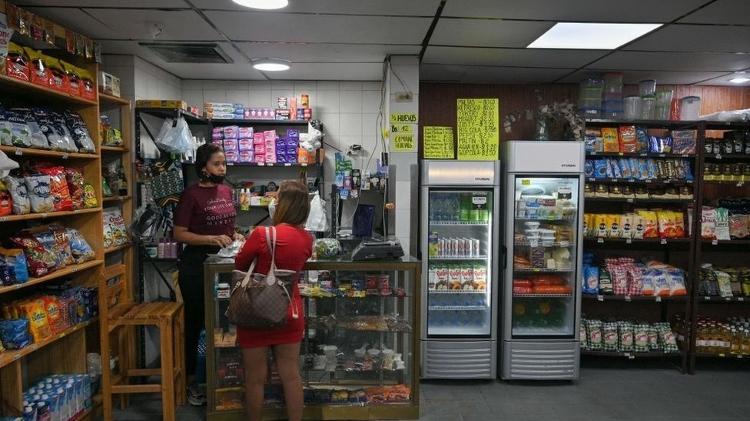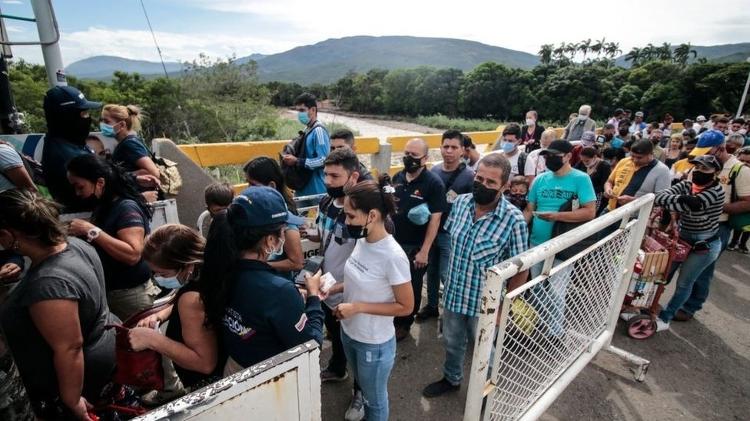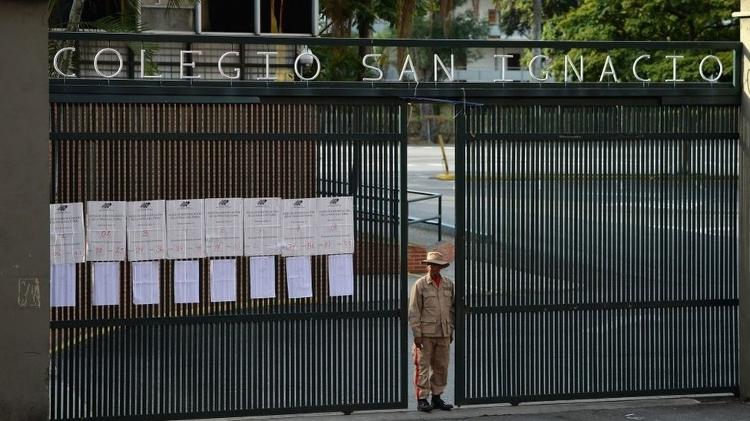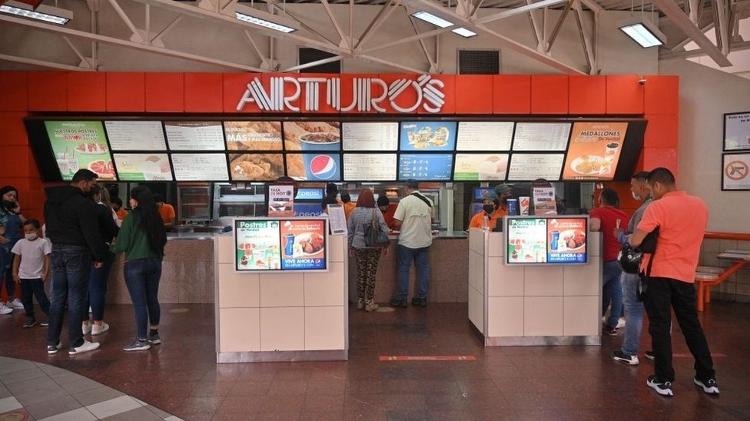In 2016, at a time when Venezuela’s economy slumped 18.6% and inflation hit a record-breaking 800%, Fátima Camacho was one of the millions of Venezuelans who made their living and went abroad.
Hunger, unemployment, high living costs, and a low minimum wage that could not afford even a basic food basket at the time prompted many people to seek a better life in South America and other countries around the world.
While many of these problems persist for the vast majority, last April, 31-year-old Camacho decided it was time to return to his country.
He repackaged everything he owned and set off on the road that took him to Peru six years ago.
This time, however, he moved to Maturín, in eastern Venezuela, with his three-year-old son.
In an interview with the Spanish BBC News Mundo, the young woman says, “The isolation we went through in Lima affected my son a lot. We had to take him to various therapies. Culturally, we never adapted to Peru.” -language news service. From the BBC.
I also heard that the economy is improving a bit and I wanted to spend more time with my family. “I want my son to enjoy communicating with them,” he said.
Camacho is part of a new phenomenon that is becoming increasingly visible in all Venezuelan cities: the return of migrants who left Venezuela, mostly in other South American countries.
Despite Camacho’s family saying the situation was “more stable”, Camacho was cautious: “I left my husband in Lima. We didn’t risk the two of them because we weren’t sure things were going well.”
signs of improvement
The serious economic crisis that has affected Venezuela since 2013 and caused more than 6 million Venezuelans to leave the country seems to have reached a limit, according to experts.
In fact, the Venezuelan economy has been showing some signs of recovery for several months.
In March, the South American country recorded a monthly inflation rate of 1.4%, the lowest since September 2012. In April, it rose to 4.4%, well below the 24.6% recorded in April 2021.
In addition, oil production, the country’s main source of wealth, started to pick up at the end of last year, after hitting an all-time low of 434,000 barrels per day in 2020.
In December last year, Venezuela produced 718,000 bpd and since then production has remained at just under 700,000 bpd.
While this amount was still too small for a country with the world’s largest crude oil reserves, producing more than 3 million barrels per day in 1998, it has nearly doubled from a historic decline in 2020.
The Economic Commission of Latin America (ECLAC) predicts that Venezuela will be one of the fastest growing countries in the region this year, with an estimated 5% growth in Gross Domestic Product (GDP). The International Monetary Fund, on the other hand, forecasts Venezuela’s more modest growth: 1.5%.
Venezuelan economist Luis Vicente León explains that this is an improvement “over a fraction of what used to be” in the Venezuelan economy.
He believes that the sanctions imposed by the US and the government’s isolation forced President Nicolás Maduro to accept an economic opening.
“The government’s loss of pressure and control over the economy forced it to allow the de facto dollarization of the economy, and also led to price opening processes and less hostility towards the private sector,” says León, head of the Datanálisis consultancy.
“The economy is still small, but in better shape than it was two years ago.”
More input, less output
Calculating the exact number of people returning is nearly impossible, as the Venezuelan government has not published statistics on immigration and has not responded to requests for information and comments made by BBC News Mundo.
But since his return to Venezuela two months ago, Camacho says he’s witnessed an “economic movement” that he didn’t see when he decided to leave, encouraging the return of fellow citizens.
“There are a lot of people who came back. I came along the way and met people who sacrificed and saved their lives in order to return to Venezuela. There are also those who left the country, but less than in other years,” he says. .
“The improvement is obvious. You see people investing in businesses, you see more street care.”
Camacho hopes the growth will be “permanent” so that his country can “truly thrive”.
According to data from Datanálisis, Venezuela reached the peak of immigration in 2018, with a net rate of immigration – those who leave less than returnees – registering around 1,850,000 people.
In 2021, the immigration balance was -180,000. Even though there are more people left than entered, this number is only 10% of the number recorded in 2018.
“Venezuela continues to lose people. There are still more people who are returning from the country, but those who left have decreased drastically and now there are more people coming back,” says Luis Vicente León.
‘For many there is no point in living abroad’
According to economists, many return from other Latin American countries.
“Venezuela has gone through three major waves of immigration. First the elites left. Then came the professionals who did not see a good future for their careers. And recently came the most populous wave, made up of a mostly poorer population, those with fewer schools and those who migrated to neighboring countries, mostly by land. ‘ he emphasizes.
“The last to migrate are also the first to return.”
Leon explains that this is because they are geographically closer and can return from land. It also claims that wage differentials for unskilled labor between Venezuela and neighboring countries are now smaller.
“Two years ago, a domestic worker in Venezuela earned between $10 and $15 a month, and it was impossible to survive on it. Now he can earn between $200 and $250 a month,” he assures.
“The difference between what they earn abroad and what they earn in Venezuela is no longer that big. In addition, there is the fact that they do not have to deal with xenophobia in their country and in most cases they do not have to pay rent, because they have a house or with family members in Venezuela. they stay.”
xenophobia
One of the reasons for Fátima Camacho’s return to her country was xenophobia.
“There was no xenophobia when we arrived, even though we didn’t have a lot of resources. The people were open and kind. But in my last year in Peru, I saw a lot of difference,” he says.
“When they realized you were Venezuelan, they stopped being nice to you. Banks put thousands of barriers for a Venezuelan to open an account. If you’re Venezuelan, everything is more complicated.”
Camacho says she didn’t bother too much at first until she realized that her three-year-old son was starting to get affected, and she tried to ignore it.
“There were cases of xenophobia at school. Our Venezuelan friends who have children told us what happened to their children even though they were born in Peru,” says Camacho.
“But these children were treated differently because their parents were Venezuelan. And no parent wants their child to be excluded.”
attempt
In May, the Venezuelan government announced that it had repatriated 264 Venezuelans from Peru under the “Repatriation Plan” program, which went into effect in 2018 to facilitate the return of migrants.
According to the government, nearly 30,000 Venezuelans from 20 countries have returned to the country since the program was created in 2018.
From November 2021, it is possible to see a change in the migration flow in Argentina as well. According to data compiled by the Argentine newspaper El Clarín, around 1,000 Venezuelans have left Argentina each month since then, and most have returned to their home countries.
Like most returnees, Camacho wants to start over with his own business in Venezuela: he sells elastic and ergonomic baby slings, which he made online.
“It’s not very popular in Venezuela, but it’s very practical. Sales are slow, but I’m just getting started,” he explains.
“I’ve already sold some. I’ve gotten a lot of love and people like it. But the Venezuelan is more cautious about investing in something now.”
Many of the returnees also opened small restaurants or bought cars to work as taxi drivers. Others returned to the work they did before leaving abroad.
Everyone dreams that the country can “return”. But many realize that radical change will not happen overnight.
According to estimates, the economy would need to grow 10% a year for nearly two decades to regain its size in 1997, the year before former President Hugo Chavez came to power.
Luis Vicente León points out that Venezuela today is not a single country, but several countries.
“There are segments of the population whose incomes are dollarized, and for them the situation has improved. But for others whose income is not in dollars, the situation is worse, because their costs have become dollarized,” he explains.
Despite the ongoing economic restrictions in Venezuela, Fátima maintains a positive attitude and asks compatriots who want to return to the country to come to advance and work.
Now returnees feel it is their duty to “take charge and motivate” their compatriots to grow the country.
– Text published at http://bbc.co.uk/portuguese/internacional-62064570.
source: Noticias
[author_name]




